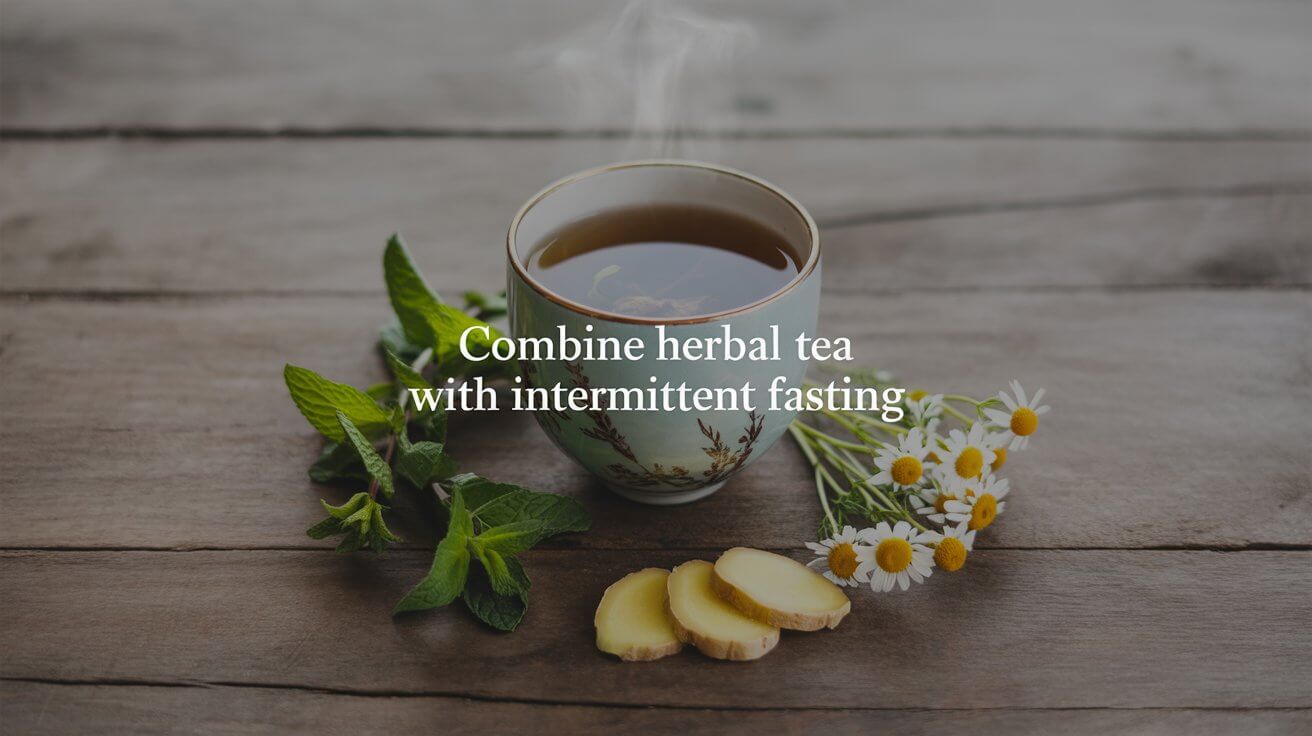Intermittent fasting continues to be one of the most effective lifestyle approaches for weight management and metabolic health in 2025. But there’s a secret many people overlook combining fasting with herbal tea can significantly enhance fat-burning efficiency, curb hunger, and improve overall wellness.
Recent findings suggest that drinking the right teas at strategic times during your fasting and eating windows can accelerate results without breaking your fast. Below, you’ll learn the science behind it, which teas work best, and how to create your own fasting-tea plan for optimal benefits.
Why Herbal Tea Enhances Intermittent Fasting
Herbal tea isn’t just a comforting beverage, it’s a fasting-friendly metabolic booster when used wisely. Here’s how it complements fasting at a biological level:
-
Zero-calorie hydration: Most pure herbal teas are calorie-free, so they don’t interfere with autophagy (the body’s cell-cleaning process during fasting).
-
Appetite control: Polyphenols in teas like peppermint and rooibos can suppress hunger hormones such as ghrelin.
-
Enhanced fat oxidation: Research in Nutrients Journal (2024) shows catechin-rich teas (like green tea) increase fat oxidation by up to 17% during fasting states.
-
Hormonal balance: Herbal teas may help regulate cortisol, reducing stress-induced cravings common during fasting.
When to Drink Herbal Tea During Fasting
Timing is just as important as the tea itself. Here’s a structured routine for maximizing results:
| Time | Fasting Stage | Recommended Tea | Benefit |
|---|---|---|---|
| 6:30 AM | Early fasting | Green Tea | Kickstarts metabolism and energy |
| 10:00 AM | Mid-fast | Peppermint Tea | Reduces cravings and maintains focus |
| 12:00 PM | Eating window opens | Ginger Tea | Improves digestion and gut comfort |
| 4:00 PM | Midday | Oolong or Rooibos | Supports sustained energy and antioxidants |
| 8:00 PM | Night fasting | Chamomile or Lemon Balm | Aids relaxation and better sleep |
Best Herbal Teas for Fasting Support (2025 Update)
1. Green Tea
-
Rich in EGCG (epigallocatechin gallate), which supports thermogenesis and fat oxidation.
-
Works best in the morning to replace coffee and minimize fasting fatigue.
-
Pro Tip: Try the All Day Slimming Tea blend it includes green tea, oolong, and natural herbs designed for fat metabolism and bloating control.
2. Peppermint Tea
-
Calms the digestive system and helps prevent overeating during your eating window.
-
Menthol compounds have been shown to naturally curb appetite and ease bloating.
3. Ginger Tea
-
A powerhouse for metabolic activation and gut health.
-
According to a 2024 review in the Journal of Nutritional Metabolism, gingerol enhances thermogenesis and improves insulin sensitivity, key for those practicing fasting.
4. Rooibos Tea
-
A caffeine-free antioxidant tea rich in aspalathin, which may reduce fat storage and stress-induced snacking.
-
Perfect for afternoon hydration during fasting hours.
5. Chamomile Tea
-
Promotes calmness and restorative sleep crucial for hormonal balance and fat regulation.
-
Pair it with nighttime fasting to enhance recovery and relaxation.
How to Brew Herbal Tea Without Breaking Your Fast
To maintain a true fast:
-
Avoid sweeteners even natural ones like honey or stevia may trigger insulin responses in some people.
-
Use pure herbs or natural blends (no added sugars or flavor syrups).
-
Stick to hot or cold-brewed infusions made from dried leaves, roots, or flowers.
For convenience, try All Day Slimming Tea, a herbal formula designed for fasting and weight loss support. It helps manage cravings while keeping your fast intact.
Common Mistakes When Combining Tea and Fasting
Even healthy habits can backfire if done incorrectly. Avoid these pitfalls:
-
Drinking too much caffeine — can spike cortisol and cause jitters on an empty stomach.
-
Using “detox teas” with hidden additives — many commercial blends contain laxatives or calories.
-
Ignoring hydration — even herbal tea can’t replace your daily water intake.
-
Skipping balanced meals — remember, tea supports fasting, but long-term success comes from nutrient-dense eating.
People Also Ask
1. Can herbal tea stop autophagy during fasting?
No. Unsweetened herbal teas generally support autophagy and may even enhance cellular repair processes, according to 2024 cellular metabolism studies.
2. Is it okay to drink tea right before breaking a fast?
Yes, especially digestion-friendly teas like ginger or peppermint, which prepare your stomach for food and reduce bloating post-meal.
3. Which herbal tea burns belly fat faster?
Green tea and oolong tea are backed by research for increasing abdominal fat oxidation. Many users of All Day Slimming Tea also report visible results in 3–4 weeks when combined with intermittent fasting.
The 2025 Trend: Personalized Fasting + Tea Plans
As of 2025, health experts are focusing on personalized fasting strategies paired with targeted tea blends. For example:
-
Morning energy protocols: Green or oolong tea-based blends
-
Evening relaxation plans: Chamomile and rooibos mixes
-
Gut-focused routines: Ginger and peppermint infusions
These personalized tea routines are gaining popularity in biohacking and wellness communities for sustainable results.
Final Thoughts
Combining herbal tea with intermittent fasting is more than a wellness trend it’s a science-backed approach to make fasting more effective, balanced, and enjoyable.
By choosing teas strategically, brewing them properly, and timing them to your fasting windows, you can boost metabolism, stabilize hunger, and enhance overall results.
As of 2025, experts agree that small habits like sipping the right herbal tea at the right time can make a big difference in long-term fasting success.


Leave a Reply